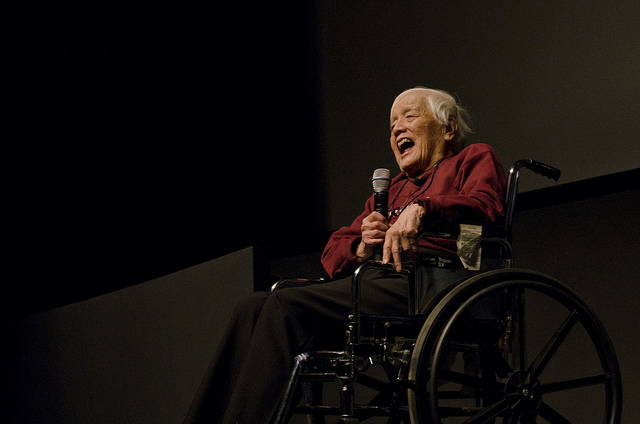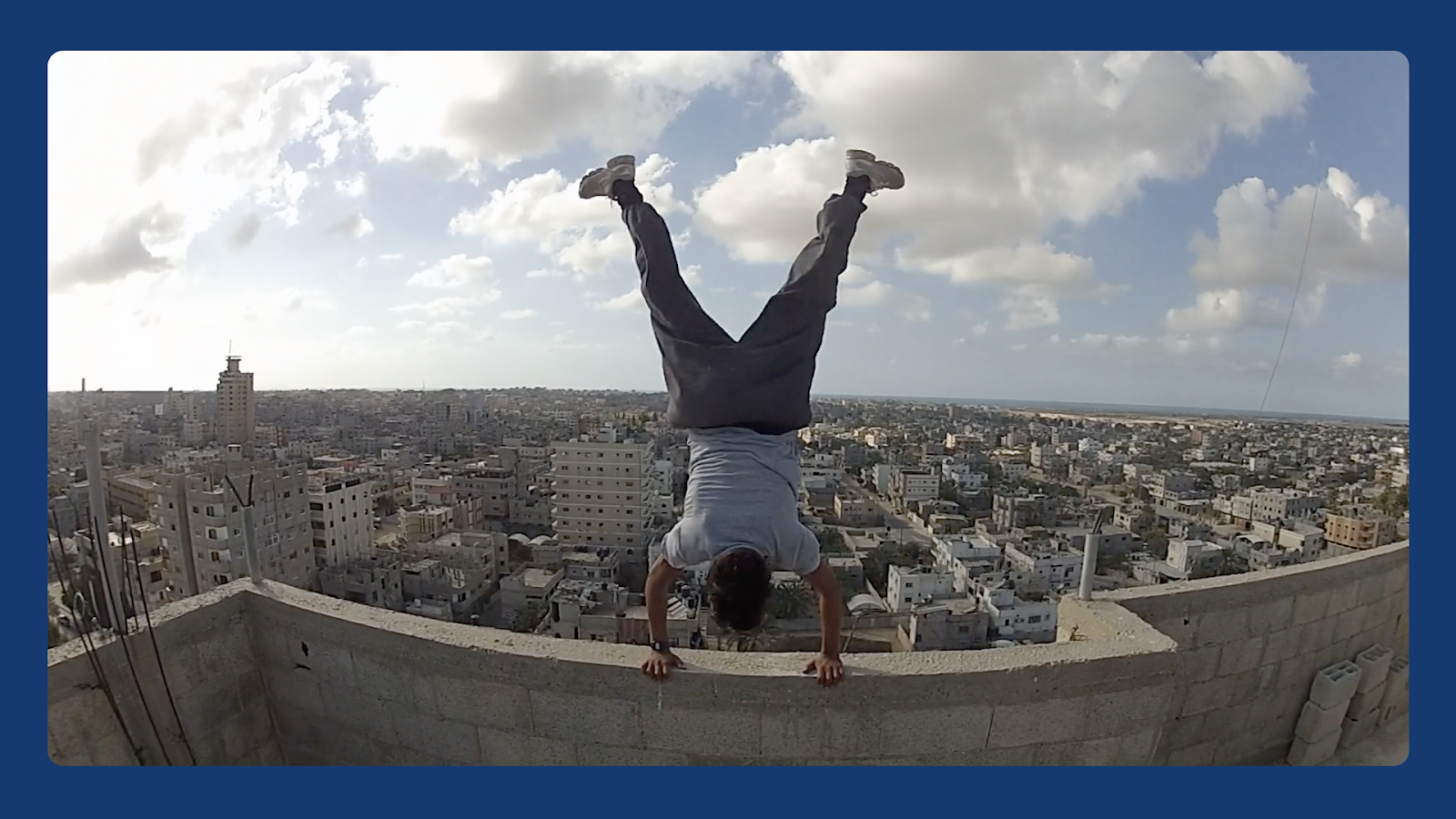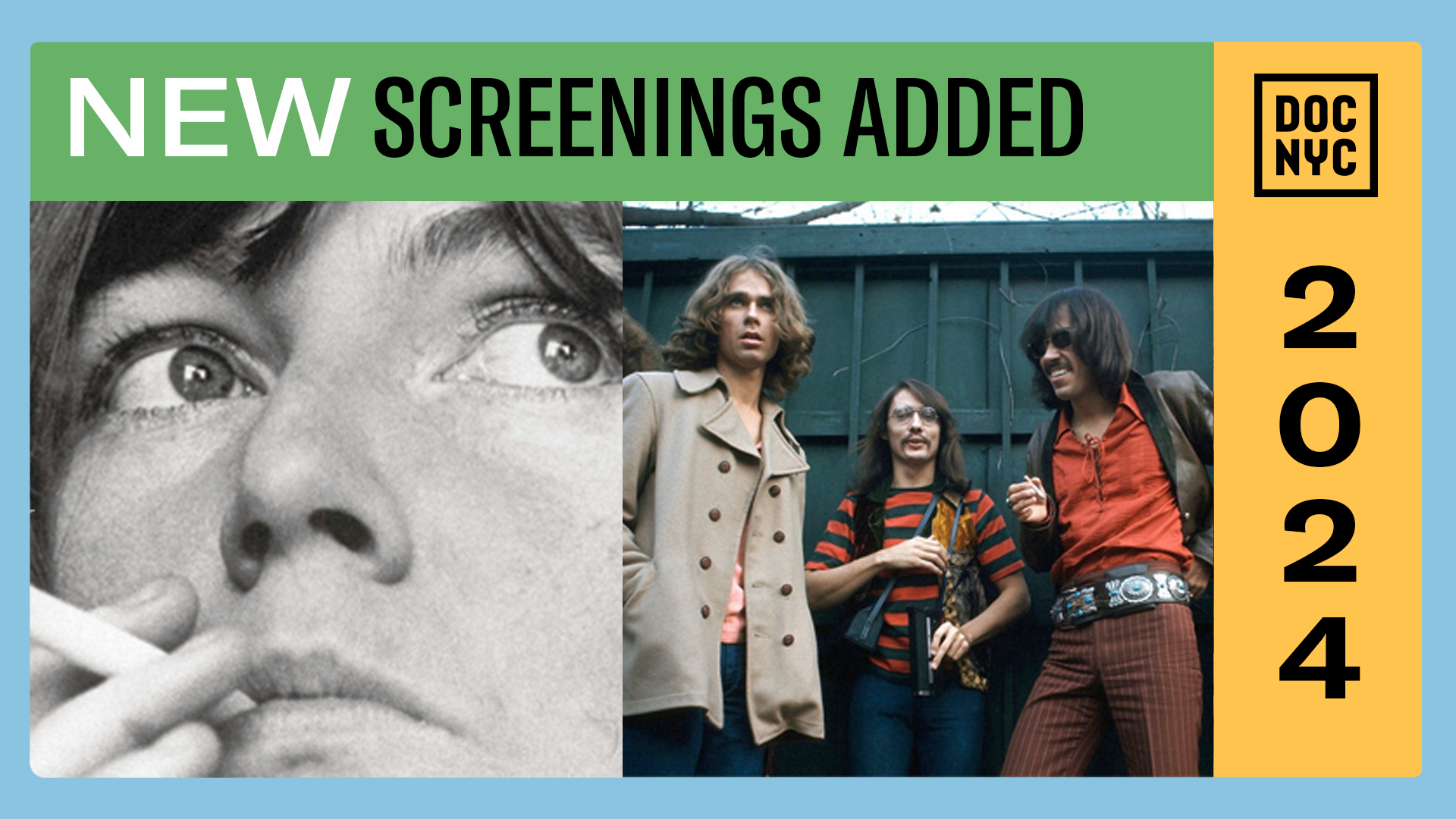American Revolutionary: The Evolution of Grace Lee Boggs

This post was written by DOC NYC blogger Maggie Glass

Even if you are the most tireless and dedicated of activists, Grace Lee Boggs will most likely put you to shame. At 98, she is still teaching, writing, and agitating from her home in Detroit, where she has lived for over 50 years. AMERICAN REVOLUTIONARY: THE EVOLUTION OF GRACE LEE BOGGS from director Grace Lee is a personal and dynamic portrait of Boggs’s influential life. A graduate of Barnard College, she later earned a PhD but found herself being turned down for department store jobs in Chicago. The reason: “We don’t hire Orientals.” Living in Chicago also represented the first time she interacted with the Black community, which would inform much of her later work in the Black Power movement.
The film traces Boggs’s evolution as an activist and a thinker, in tandem with the cultural changes that rocked America in the 1950’s and 1960’s. As a civil rights supporter and Marxist, she earned a hefty FBI file, but preferred to stay behind the scenes. “Great ideas can percolate from the bottom,” she said. But staying out of the limelight hardly meant that Boggs was the quiet sort. A rigorous thinker, she has spent her life engaged in conversation and challenging those around her. (And for those who need to brush up on their philosophy, the film provides some very funny and informative “Hegel in 30 Seconds” tidbits.)
True to her continuing energy and involvement, Boggs flew in from Detroit and was present at the screening, along with Lee, whose evolving relationship with Boggs is an integral part of the film. When asked what inspired Lee to make the documentary, she talked about the interactions they’ve had over the years. “I wanted to recreate what it’s like to be in a room with Grace Lee Boggs,” she said. “Because that’s something that everyone should experience.” A source of continuing optimism, Boggs responded to an audience question about the Detroit city takeover by describing it as dangerous and counterrevolutionary, but also a representing a valuable opportunity for resistance. “You don’t choose the times you live in,” she said. “But you do choose who you want to be.” And when asked about the general public’s reaction to the film, she smiled her wide and expansive smile. “To find out your life means something is a wonderful experience.”
Maggie Glass is a New York based writer and film editor.


